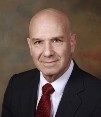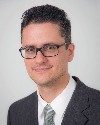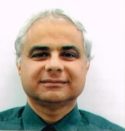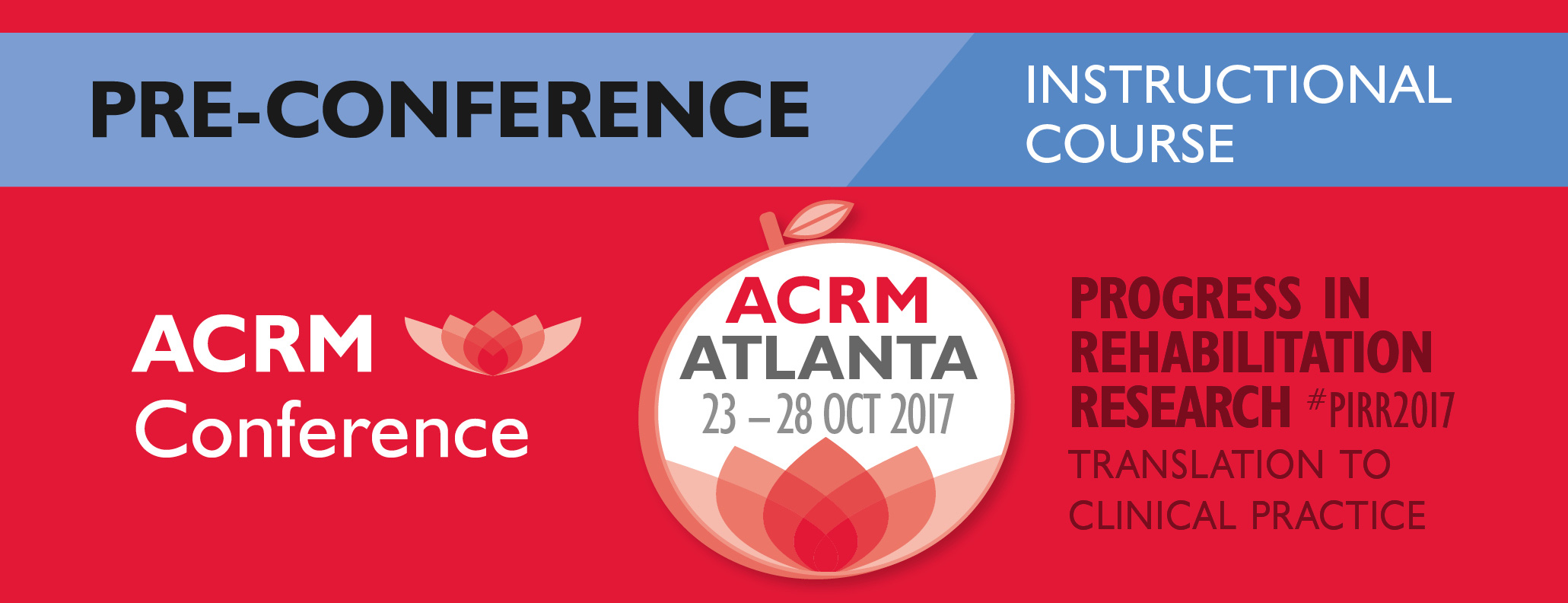WED 25 OCT // 8:30 AM – 12:30 PM
Primary Content Focus: Cross-Cutting
Secondary Content Focus: Brain Injury
Tertiary Content Focus: Military and Veterans Affairs
Sleep is critical for neural repair in early stages of recovery and disordered sleep may play a role in early neurodegeneration after conditions such as TBI. The Centers for Disease Control has declared insufficient sleep a public health epidemic. Further, disorders such as sleep apnea are increasingly recognized as under-diagnosed and suboptimally treated in the general population. This is particularly important because sleep apnea is a treatable condition that may alter outcomes. This course proposes to bring together experts in rehabilitation and sleep medicine to provide current knowledge of sleep apnea diagnosis, treatment, and outcome in the neuro-rehabilitation setting.
LEARNING OBJECTIVES
- List criteria for sleep apnea diagnosis and differentiate subtypes
- Describe differences between levels of polysomnography to diagnose sleep apnea and their use in the rehabilitation setting
- Describe management strategies for sleep apnea and lessons learned for implementation in rehabilitation populations
- List mechanisms by which disordered sleep may hinder neurologic recovery early after injury and play a role in early neurodegeneration
PRESENTERS
Risa Nakase-Richardson, PhD
James A. Haley Veterans Hospital
Daniel Schwartz, MD
University of South Florida and James A. Haley Veterans Hospital
Karel Calero, MD
University of South Florida
Mo Modarres, PhD
VA RR&D Brain Rehabilitation Research Core, North Florida/South Georgia Veterans Health System
Kathleen Bell, MD
University of Texas, Southwestern
BIOS

Dr. Risa Nakase-Richardson is a clinical neuropsychologist with 17-years’ experience working in TBI neurorehabilitation in both clinical and research capacities. She has 61 publications and over 150 presentations at national and international conferences. She is a fellow in the American Congress of Rehabilitation Medicine and National Academy of Neuropsychology. Her primary area of interest has been TBI and outcome. Her work has led to development of new assessment instruments for use in early neurobehavioral recovery, development and preliminary evaluation of program interventions for managing sequelae of severe brain injury, long-term rehabilitation needs after brain injury, and phenomenologic studies that have helped contribute to the empirical base of understanding the diagnostic distinctions among syndromes of impaired consciousness. She currently serves as Co-Chair of the Sleep-Wake Fatigue special interest group within the TBI Model System program of research funded by the Departments of Health and Human Services, Veterans Affairs, and Patient-Centered Outcomes Research Institute. She recently chaired a think-tank meeting on the topic of sleep and TBI funded by the Galveston Brain injury Conference in 2014. Further, she was invited to serve as Guest Topical Editor on a special issue in the Journal of Head Trauma and Rehabilitation on the topic of sleep and TBI. She has served various research roles including principle investigator, investigator, research director, and project manager on TBI grants from VA Health Services Research and Development, VA Clinical Services Research and Development, the Defense and Veterans Brain Injury Center, the National Institute on Disability and Rehabilitation Research, and National Academy of Neuropsychology. During her tenure in neurorehabilitation, she has actively participated towards the improvement of rehabilitation of persons with TBI. Prior to employment within VHA, Dr. Richardson has served as Asst. Training Director and Training Director of an APPCN Neuropsychology Postdoctoral Fellowship with specialized training in the full continuum of care for persons with acquired brain injury starting with ICU assessment through community re-integration. Currently, she is supervising neuropsychology, rehabilitation psychology, and pulmonary sleep medicine fellows in clinical and research projects related to this topic.

Dr. Daniel Schwartz is a tenured professor of sleep medicine and currently serves as Associate Professor of Pulmonary Medicine at USF and serves as Director of Sleep Medicine Laboratory at James A. Haley VAMC. He has 14 publications in sleep medicine and has been active in training of sleep-medicine fellows as USF. Dr. Schwartz has contributed a significant amount of time advancing collaboration between sleep medicine and TBI rehabilitation investigators in conjunction with Dr. Risa Nakase-Richardson.

Karel Calero is currently an assistant professor of Pulmonary Critical Care and Sleep Medicine at the University of South Florida, working both at James A. Haley VA Hospital and at Tampa General Hospital, Tampa, FL. Dr. Calero has been working on multiple projects involving sleep and the use of objective sleep measures in the ICU and acute neurorehabilitation setting. He is responsible for reading sleep studies at Tampa General Hospital, a tertiary academic medical center and mentor sleep medicine fellows. Dr. Calero has participated in the study of sleep in traumatic brain injury with Dr. Risa Nakase-Richardson.

Mo Modarres has educational and professional experience as a biomedical engineer/scientist, which has provided him with expertise in brain monitoring techniques that have been applied to various neurological, sleep, and psychiatric disorders. Dr. Modarres’ R&D effort in the past 25 years has centered around developing state-of-the art monitoring devices and analytical methods that have been applied to quantify sleep and brain function abnormalities and disorders. His research experience includes having been the Principal Investigator on a number of multi-year NHLBI, NIMH, NINDS, and DOD supported grants for which he led the development of new technologies and test paradigms and performed clinical evaluations in a variety of neurological, sleep, psychiatric, and mental disorders including TBI, sleep apnea, insomnia (primary and secondary to depression/anxiety), seizures and ADHD. These projects were supported by SBIR grants for the development and clinical testing of novel, neuro-physiologically based techniques that have been based on the analysis of bio-signals during wakefulness and sleep. The outcome of these SBIR grants has been a number of technologies and commercial products that are currently being marketed by Cleveland Medical Devices Inc. and NeuroWave Systems Inc and a number of patents related to signal data acquisition and signal processing and interpretation of neuro-physiological signals.

Dr. Kathleen Bell is the Chair of the Department of Physical Medicine and Rehabilitation at UT Southwestern Medical Center and holder of the Kimberly-Clark Distinguished Chair in Mobility Research. She graduated from Temple University Medical School in Philadelphia, PA and completed residency training in Physical Medicine and Rehabilitation at the University of Washington in Seattle, WA. She completed an NIHR (now NIDLIRR) Switzer Fellowship at the University of Washington as well as the Teaching Scholars Program. Dr Bell was a Professor in the Department of Rehabilitation Medicine at the University of Washington for 20 years before moving to UT Southwestern in Sept of 2014. Her research interests and publications have centered on treatment and outcomes for traumatic brain injury including self-management techniques, post-traumatic headache, sleep disorders after TBI, and exercise for depression. Current interests include youth sports concussion and cerebrovascular blood flow after concussion. She been continuously funded by the National Institute on Disability and Rehabilitation Research, the Department of Defense, PCORI, and the Centers for Disease Control since 1998. Dr. Bell is currently a Past-President of the American Academy of Physical Medicine and Rehabilitation, the Co-Director of the Texas Institute for Brain Injury and Repair and an investigator for the North Texas Concussion Registry (CON-TEX) and the North Texas TBI Model System.
ACRM Annual Conference, Progress in Rehabilitation Research (PIRR#2017)
CORE: 25 – 28 OCT 2018 // HILTON ATLANTA, USA // PRE-CONFERENCE 23 – 25 OCT
REGISTER ONLINE HERE or Register by Phone: +1.703.435.5335
 |
 |
 |
 |











